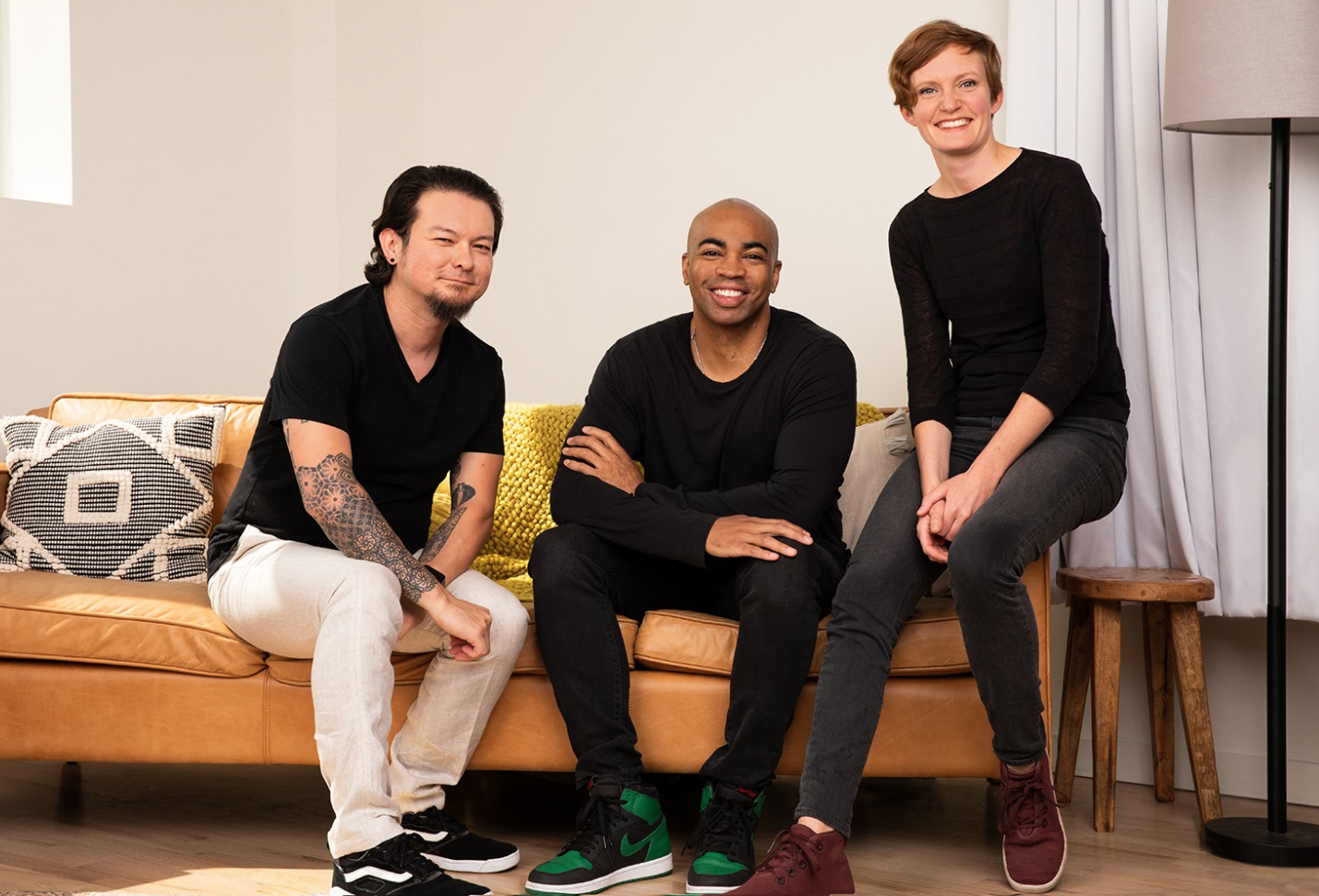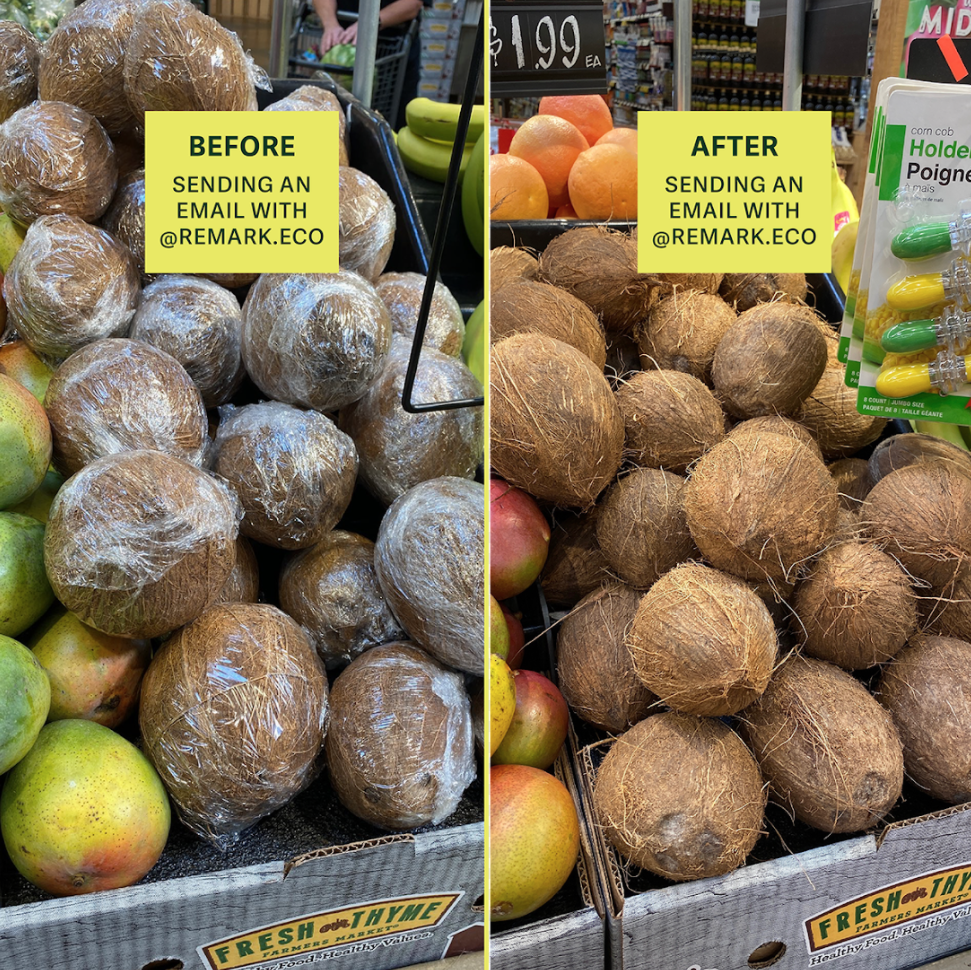Whether you’re dining in or getting takeout from your favorite restaurant, there is now an app, Remark: A Sustainability Feedback App, that allows you to submit immediate sustainability feedback to that business. Disposable food and beverage packaging makes up 67% of litter in commercial streets. Whether it is single-use food and drink takeout containers or lack of compost bins, with a few taps on your phone screen, you can send an email directly to the restaurant owner and tailored to the sustainability feedback that you select. One of the Remark app’s mottos is “when you see something, say something,” and that’s exactly what the app was designed for.
The pandemic allowed a significant increase in single-use plastic disposables especially with takeout from restaurants, and apps like Remark Sustainability are paving the way to allow individuals like you to take efficient and effective action to encourage businesses to amend their sustainability practices. Now more than ever, it’s important that businesses pay attention to customer feedback and are operating with sustainability as a priority.
“Real impact through feedback. Together we can fix a broken system.”
The Ecology Center, while celebrating Plastic Free July and highlighting the reuse and zero waste movement, was able to speak with CEO and co-founder of Remark, Jessica Lybeck. Lybeck, along with various leaders in the reuse, refill, and zero waste movements, shared their research, businesses, and shared knowledge and stories that addressed sustainability challenges and solutions.
Dr. Kate O’Neill, UC Berkeley ESPM professor, and UC Berkeley PhD candidate, Jessica Heiges, spoke on the research progress and findings of the City of Berkeley’s Single Use Disposable Ordinance (SUDs). O’Neill also shared on historical global and wide-spread actions which indicates today that anti-single-use-disposable policies are stronger than any disruptions.
We were also joined by Lindsey Hoell, CEO of Dispatch Goods who saw a need to make reusability more accessible. She works with various food businesses across different regions of the Bay Area to supply reusable containers as an alternative to single-use disposables. Dispatch Goods collects the used containers, cleans them, and then redistributes them to the food businesses for reuse.
Stéphanie Regni, founder of FillGood and located in Berkeley on Solano Ave., shared on Fillgood’s business focus on reuse, refill, and composting. The Berkeley FillGood store has 80 items in bulk and offers home delivery, in-store shopping, and a network of pickup locations, which includes our Ecology Center Store. Read more on the beginning of FillGood here.
Now, more on the Remark App:
How did the Remark app come to be?
Remark was the outcome of Lybeck’s drive to make changes for the better. She drew inspiration from a book entitled “Zero Waste Home.” From this book she determined that consumers need to give businesses “direct’ and sustainable feedback. Lybeck offered a quote from Yvon Chouinard (founder of Patagonia, Inc): “If you want to change the government, you have to change the corporations. If you want to change the corporations, you first have to change the consumers.”
Lybeck stressed the utmost importance of consumer action:
“Thanks to capitalism, our actions, our voice and our purchases as consumers directly impact how businesses make decisions. Business and corporate interests are the underpinning of creating political will and legislation.“
How does the Remark app work? 
Remark hopes “to harness the voices of consumers, as a collective movement, to help businesses large and small to make changes for the better.” Years before Remark, Jess had become concerned with what she might do to make even a dent in the consumer waste problem. Today she and her team continue to mobilize and grow Remark’s impact by users who help play an integral role in reaching out to businesses and sharing sustainability feedback.
Lybeck and her co-founders developed the Remark app to allow anyone on the app to easily and quickly contact businesses with sustainability feedback, in the form of an email. Remark will then forward your email to the CEO or the business owner you wish to reach. It doesn’t end there! Remark continues to notify you when the owner reads, responds, or makes a change based on your feedback. Remark follows-up any reply from the business with “no-cost” resources to make a sustainable switch. These include demonstrating the benefits of reuse over disposables, and connecting restaurants with providers who can help them create less waste and save money. Remark also partners with Plastic Free Restaurants, and ReThink Disposable, which help subsidize the initial cost of making the transition to reuse for restaurants and more simple to act, thus keeping that action a low risk.
What is the impact Remark wants to make?
Remark wants sustainability to be at the top of business considerations. Remark has seen a general 25% response rate to Remark feedback based on app users. Even when there is no response to an email generated by the app, Remark has seen positive changes in some of those businesses’ environmental actions.
The Remark app is easy for consumers to use, selecting areas of sustainability feedback for a business, then automatically crafting an email to send to business owners — now that’s a simple way to stimulate change! We encourage you to download Remark Sustainability today and continue to make a difference, one meal, one drink, one purchase, at a time.
“The system won’t change until we tell it to.”
If you weren’t able to join us for the Plastic Free Comeback event, you can watch the recording and check out other plastic-free and reuse resources and call-to-actions on our Plastic Free July website.
This article was written by James Hosley of the Ecology Center Help Desk.





